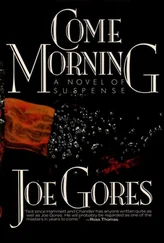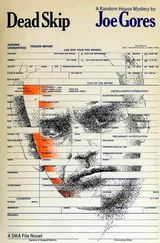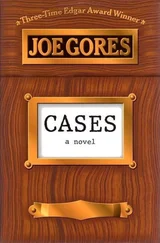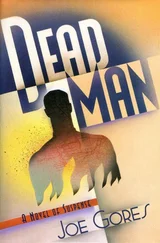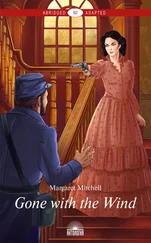Last to arrive was Johnny Delaney, who knew only that he and his wife had returned from a movie the night before to find a uniformed patrolman waiting on the front stoop. Delaney was merely asked to meet with the head of the Police Intelligence Unit at the Chiefs office the next morning. Being no fool and a bit ambitious, Delaney had expressed total delight at this opportunity to blow his Sunday. “Inspector Nicoletti? Johnny Delaney of the Attorney General’s Office. Pleased to meet you.”
As they shook hands, Nicoletti said, “I have a favor to ask. I think you know Dan and Hec.”
Delaney, seeing them for the first time around Nicoletti’s formidable bulk, stopped dead. “What the hell is this?” he said angrily.
“First you listen, then you talk.”
“First I walk,” snapped Delaney, turning back toward the door.
“Your ass is on the line,” said Nicoletti to his back.
Johnny Delaney swiveled slowly, his lips drawn back into a truculent sneer. “According to who, Nicoletti?”
“Information received, as the feller says.”
“You exceeded your brief, Johnny-me-bhoy,” said Tranquillini in his irritating way, “when you conned Dan into paying Pivarski so you could try to use it against him at the hearing.”
“There was nothing illegal about that,” said Delaney defensively. Without realizing it, he had turned back and was pulling back a chair from the conference table.
“How about ethical?”
Delaney colored slightly.
“The point is, Johnny,” said Kearny, “that I know DKA ain’t guilty of anything. So I’ve had my men out, checking around.”
The easy anger of his Irish heritage thickened Delaney’s voice. “On me?”
“On Greenly. Who’s on the take.” Delaney said nothing, so Kearny continued, “Unless you’ve got another way of explaining how he could be behind in his house payments from gambling up to five months ago, then suddenly turning into A-l pay — without quitting gambling. That he keeps a safe-deposit box under a phony name and a mistress on the side. That he’s dropping markers with bookies all over Sacramento.”
Delaney finally sighed, like a man who had just laid down a heavy load. He hadn’t been sleeping too well because of going along with Greenly; he was almost glad to hear the man was dirty. “Dan, I want you to know that I made that offer in good faith. And urged Greenly to drop the charges if you paid. But he said...”
“If Dan didn’t believe that,” said Tranquillini coldly, “you wouldn’t be here.”
“How about you, Hec?”
Tranquillini shrugged, his face devoid of emotion. “I always felt it was Greenly’s idea. But I told you at the hearing what I felt about it. I’m going to bust your ass for it, John. Not today or tomorrow, maybe. But sometime... in some courtroom...”
“Meanwhile,” said Nicoletti, “let me tell you about this favor I want to ask.”
But first he laid everything out for Delaney. The hit on Fazzino, the fact that Pivarski had been I.D.’d from a driver’s license photo as the hit man, the fact that he couldn’t be because he’d been in Kearny’s Oakland office at the time of the murder.
“And we’re even more sure of that now than we were before,” said Nicoletti, including Kearny and Tranquillini in his remarks. “I’ve had men out digging. Pivarski was delivering plaster that day to a subdivision site down in Fremont. He delivered his last load there just in time to get out to Concord to Hawkley’s office, then down to the DKA office by about five-thirty. We checked on the deposit Simson made to the bank. They don’t log-in deposits, but they do have a rule that any deposit made after five o’clock is recorded as a transaction on the following banking day. The one Simson made on November fifth was recorded the following Monday — the eighth.”
“So where do I come in?” asked Delaney.
“I want you to meet Hawkley and Pivarski at the Golden Gate entrance of the State Office Building tomorrow morning, rather than inside, and maybe take them up the street to a coffee shop to discuss Pivarski’s testimony ahead of time.”
“I’d do that anyway,” said Delaney. “But why—”
“My witness is in town even though we’re sure Hawkley thinks he left for Canada on Friday. We want him to get an eyeball of Pivarski.”
“Why? If you’re sure Pivarski isn’t the man—”
“Mainly because Hawkley has worked so hard to keep us from getting an eyeball of him.”
Delaney was silent for a time. Finally he shrugged. “Okay. As long as you guys all understand that I think
DKA is guilty as charged, and that I’m going to do my damndest tomorrow to take away their license to operate.”
Nicoletti made a grandly dismissive gesture. “Fine with me.”
Kearny looked glum. Tranquillini nodded.
“And as long as you understand, Johnny, that I’m going to roast your witness’s butt in a way you wouldn’t believe.”
Harris House was a five-story brownstone in the 100-block of West 122nd Street in Harlem. Bart Heslip had gotten off the bus from Boston at the Port Authority Bus Terminal on Eighth Avenue, had wired his flowers to Rosalind Parton, and then had walked the Sunday-sparse streets up to 122nd just to get the kinks out. At the front door he was told that Mommy Harris was off at church with the older among her fifty charges, and that he should come back at eleven.
As he was finishing a cup of coffee around the corner, he saw a fiftyish-looking slat-thin black woman, followed by a Pied Piper gang of kids, trooping by the direction of Harris House. He finished his coffee and followed.
Ten minutes later he sat with Loretta Harris, the woman’s daughter, in her paneled, crowded office of the ground-floor hall of Harris House. Through the half-open door could be heard the muffled confusion of half-a-hundred kids freed by the Lord’s day from weekday restraints. “Bart Heslip, sure. Rosie Parton called this morning. Thinks she’s tough, that one, woman of science, detached, medical.” She gave a rolling peal of laughter. “Soft as butter. My mother will be either out in the kitchen seeing what the cook’s up to for Sunday dinner, or on the second-floor babies’ suites.”
Going up the stairs to the nursery after striking out in the kitchen, Heslip felt a growing sense of anticipation. In the past ten days he’d come to have a puzzled regard for Verna Rounds. Started out as an ignorant little file clerk, so ignorant she got recruited into whoring, got knocked up and clapped up and on heroin — and could you get any dumber than that? Then quit the profession, lost a baby, cold-turkey’d her habit, and now was an assistant in the damndest orphanage Heslip had ever seen.
An orphanage where the kids had living parents who were off straightening themselves out, kids who’d been born junkies, kids who now got love and attention from a sixty-five-year-old black woman he was about to meet. He thrust his head around the doorjamb, “Mrs. Harris?”
The thin woman he’d seen on the street had as warm a smile as her daughter’s fleshier one. Her face had the tremendous dignity certain black faces got with age and righteousness, yet was youthful and humorous despite the network of wrinkles around the deep-set eyes. “Call me Mommy, most everyone does.”
“Bart Heslip.”
“About Verna. Yes. Come on in, let’s walk and talk a bit.”
They walked and talked the length of the babies’ suite, which ran the length of the house. At the front were cots for the two- and three-year-olds being made up or changed by a couple of chattering assistants. Heslip had noted all the assistants were black.
“The girls who work here, are they...” He paused.
“Ex-addicts?” Mommy shook her head. “Ex-addicts have been through detoxification and withdrawal, but they still have to live in residences where they can get constant advice and attention and see a psychiatrist when they need one — at least once a week. We just don’t have time for that around here. The kids take all our attention.” She gave a sunny smile. “And all our love.”
Читать дальше
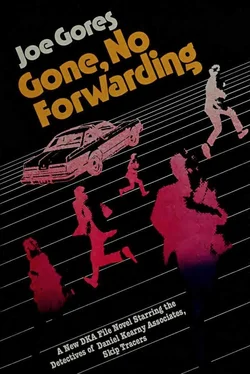


![Эрик Рассел - Подарок дядюшки Джо [=Подарок от Джо] (ёфицировано)](/books/65161/erik-rassel-podarok-dyadyushki-dzho-podarok-ot-dzho-thumb.webp)



